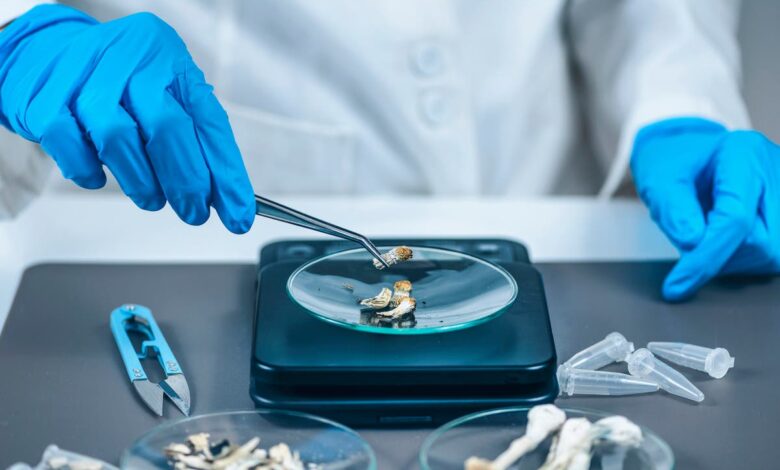Regular tiny doses of psychedelic mushroom found to improve mood, mental health

Taking tiny amounts of psychedelic mushrooms can improve mood and mental health, according to a new study that adds to growing evidence of the therapeutic potential of microdosing.
The research, published last month in the journal Scientific Reports, followed for about 30 days 953 people taking very small amounts of psilocybin and another group of 180 people who were not microdosing.
Scientists, including those from the University of British Columbia in Canada, found that the microdosing showed greater improvements in mood, mental health, and mind-body coordination over the one-month period, compared to non-microdosing peers who completed the same assessments.
“This is the largest longitudinal study of this kind to date of microdosing psilocybin, and one of the few studies to engage a control group,” co-author Zach Walsh said in a statement.
“Our findings of improved mood and reduced symptoms of depression, anxiety and stress add to the growing conversation about the therapeutic potential of microdosing,” Dr Walsh said.
In the study, participants were asked to complete a number of assessments during the 30-day study period that tapped into mental health symptomology, mood, and measures of cognition.
A smartphone finger tap test was also integrated into the study to measure psychomotor ability, which can be used as a marker for neurodegenerative disorders including Parkinson’s disease.
“This paper breaks down psilocybin microdosers demonstrating greater observed improvements in mood and mental health at one month relative to non-microdosing controls. These interesting results may help inform the design of human clinical trials,” co-author Paul Stamets tweeted.
Psychedelic psilocybin mushrooms, which have a long history of use among some Indigenous communities, were labeled an illicit substance during the American-led “war on drugs”, but researchers say recent interest in their use has expanded to the potential therapeutic application of smaller microdoses.
Scientists say such microdoses are so small that they minimally interfere with daily functioning.
The doses, they say, can be as small as 0.1g to 0.3g of dried mushrooms, that may be taken three to five times a week.
Researchers say psilocybin mushrooms are considered non-addictive, and relatively non-toxic compared to tobacco, opioids, and alcohol.
“Our findings of mood and mental health improvements associated with psilocybin microdosing align with previous studies of psychedelic microdosing, and add to them through the use of a longitudinal study design and large sample that allowed us to examine consistency of effects across age, gender and their mental health,” Joseph Rootman, another co-author of the study, said.
However, scientists also add that further research is needed to “more firmly establish” the nature of the relationship between microdosing, mood and mental health, and the extent to which these effects are directly attributable to psilocybin.
Due to the “tremendous” costs and pervasiveness of depression and anxiety, as well as large numbers of patients not responding well to existing treatments, scientists say the potential for another approach via microdosing to address these disorders warrants “substantial consideration”.





